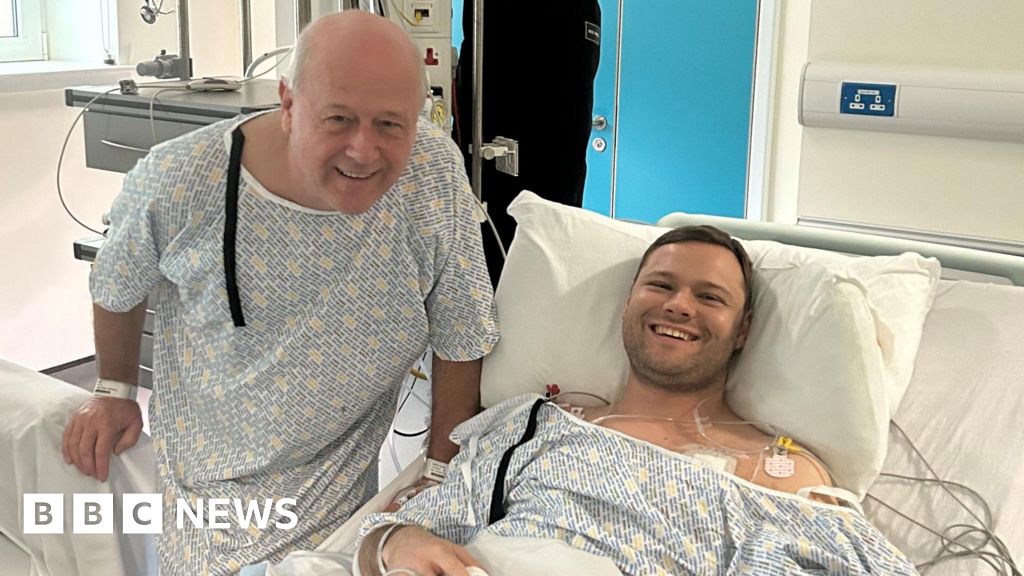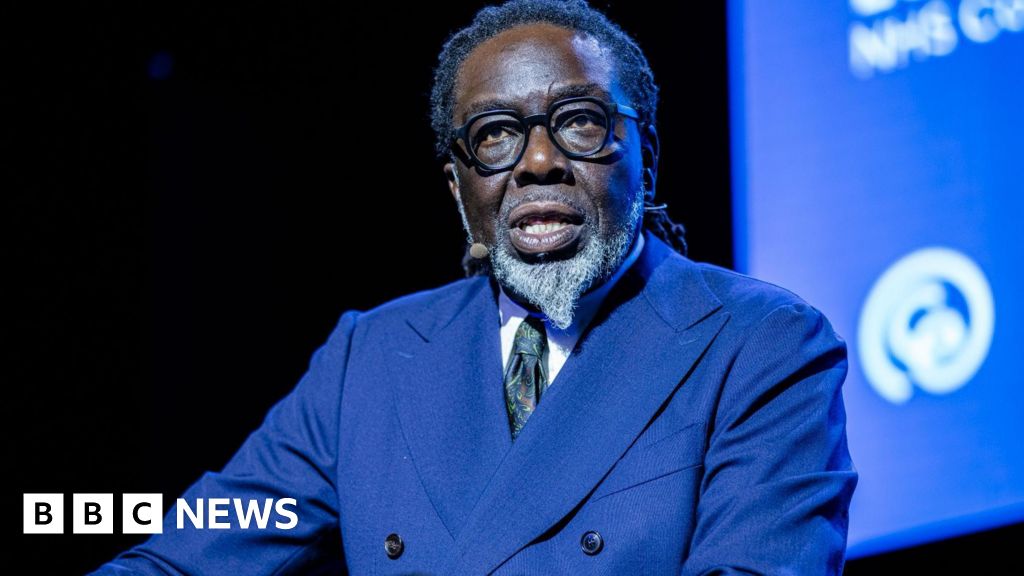ARTICLE AD BOX
 Image source, Science Photo Library
Image source, Science Photo Library
By Dominic Hughes
Health correspondent, BBC News
Protections for NHS staff to speak out about wrongdoing may be insufficient to prevent another big scandal like that at the Mid Staffordshire hospital trust, an expert has told BBC News.
Sir Robert Francis led the inquiry into hundreds of patient deaths at Stafford Hospital more than a decade ago.
He says despite subsequent attempts to encourage whistleblowing, some still pay a heavy price for speaking up.
And this victimisation discourages others from coming forward.
The NHS National Guardian Dr Jayne Chidgey-Clark, whose job it is to protect whistleblowers in England, also says too many managers in the health service are still not protecting those who raise concerns from victimisation or bullying.
A record number of more than 25,000 NHS whistleblowers came forward last year - up by a quarter on the year before - raising issues such as patient safety and bullying.
Tristan Reuser, a senior eye surgeon at the main hospital trust in Birmingham, became a whistleblower when he complained about a lack of nursing staff, after he felt he had to use a non-medical colleague to help with an urgent operation.
But instead of addressing the issue, management turned on him, he tells BBC News.
"If you whistleblow, you criticise, essentially, systems - systems designed by senior management," Mr Reuser says.
"So you criticise senior management - and if you're in the position of a senior manager, you don't like that. So what can we do about this?"
Mr Reuser was investigated, suspended and then sacked and reported to the General Medical Council - which found there was no case to answer.
A subsequent employment tribunal found he had been unfairly dismissed.
Image source, BBC News
Image caption,Eye surgeon Tristan Reuser had been unfairly dismissed from his post, after raising concerns, a tribunal found
Mr Reuser seems robust - but asked how he had coped with the emotional burden of the investigation, the GMC case, the employment tribunal, he falters.
"It was pretty bad," he says. "And at times, I thought this is the end of it."
There is a long pause as he gathers himself.
"It's tough, career-changing," he says. "Sometimes for some people, I'm sure, life-changing."
Asked if, like some others who have spoken to BBC News he had thought about suicide, Mr Reuser says: "I've had those thoughts, yup. But you know, a supportive wife makes it go away."
A University Hospitals Birmingham official says the trust takes safety concerns raised by staff seriously.
It accepted and apologised for errors made in Mr Reuser's case but said it had acted in the interest of patient welfare.
Like every NHS trust in England, UHB employs freedom-to-speak-up guardians to help whistleblowers be heard.
This system was set up in the wake of the Mid Staffordshire scandal that saw hundreds of patient deaths due to poor care between 2005 and 2009.
But when Sir Robert is asked whether he is confident it will prevent another catastrophe, he says: "Am I confident, 100%? No.
"There is a danger of it happening again when pressures similar to those that existed at the time of Mid Staffs come about.
"But I think the way to stop it is to think all the time about the culture and make sure you've got an open culture, a supportive one and one that treats the patient first by listening to the staff's concerns about them."
Being victimised
Failing to listen to staff concerns is often a sign of poor leadership, Sir Robert tells BBC News.
"Principally, it is a matter of the leadership of the organisations," he says, "because the leadership, by which I mean the chief executive, the board, have to buy into and understand what this is all about.
"And probably people at that level - of a certain type - find it difficult to let go of control and one of the things about allowing people to speak up is... you're not entirely in control."
One of the problems reporting on this story is finding people willing to speak publicly about their experiences.
Many of those who did speak to BBC News did not want to be identified - they spoke of being victimised and isolated at work, of the risk that, like Mr Reuser, they could be referred to the medical regulator or lose their jobs and careers.
And many spoke of a climate of fear.
'Absolutely horrendous'
Dr A, so terrified of management reprisals BBC News has had to disguise their identity, also raised issues around patient safety only to find themselves being investigated.
"I've had sleeping difficulties, I've had counselling - it's been absolutely horrendous," Dr A says.
"It really has been a dismantling of me as a person - it's made me more fearful, more anxious."
And the culture in their hospital is best described as "management by fear".
"My concern about doing this interview is that they would find out who I was and then the punishment that would come my way - because I'm absolutely certain punishment would come," Dr A says.
"It comes straight from the top - it's from the executive team.
"They have been instrumental in causing it but yet they are tasked with trying to sort it out - and that cannot be the case."
Image source, BBC News
Image caption,Dr Chidgey-Clark is calling on NHS England and the CQC to do everything in their power to protect whistleblowers
Dr Chidgey-Clark says the main healthcare regulator - the Care Quality Commission (CQC) - and NHS England itself could do more to protect individual whistleblowers and rein in rogue managers.
"I do call on them to do everything they can within their power to ensure there is accountability and these serious issues are looked into," she says, "because without that, more high-profile cases will happen and, potentially, more patient harm and worker harm will happen. And in our society, in our healthcare system, we don't want to see that.
"Nobody should suffer for doing the right thing."
NHS England admits too many staff remain afraid to raise issues - but, an official says, it wants all employees to feel they work in an organisation where their voices count.
The CQC, meanwhile, tells BBC News it examines how all hospital trusts respond to whistleblowers, as part of its inspection regime - and for any trust to restrict this information would be absolutely unacceptable.
Related Internet Links
The BBC is not responsible for the content of external sites.

 1 year ago
137
1 year ago
137








 English (US) ·
English (US) ·